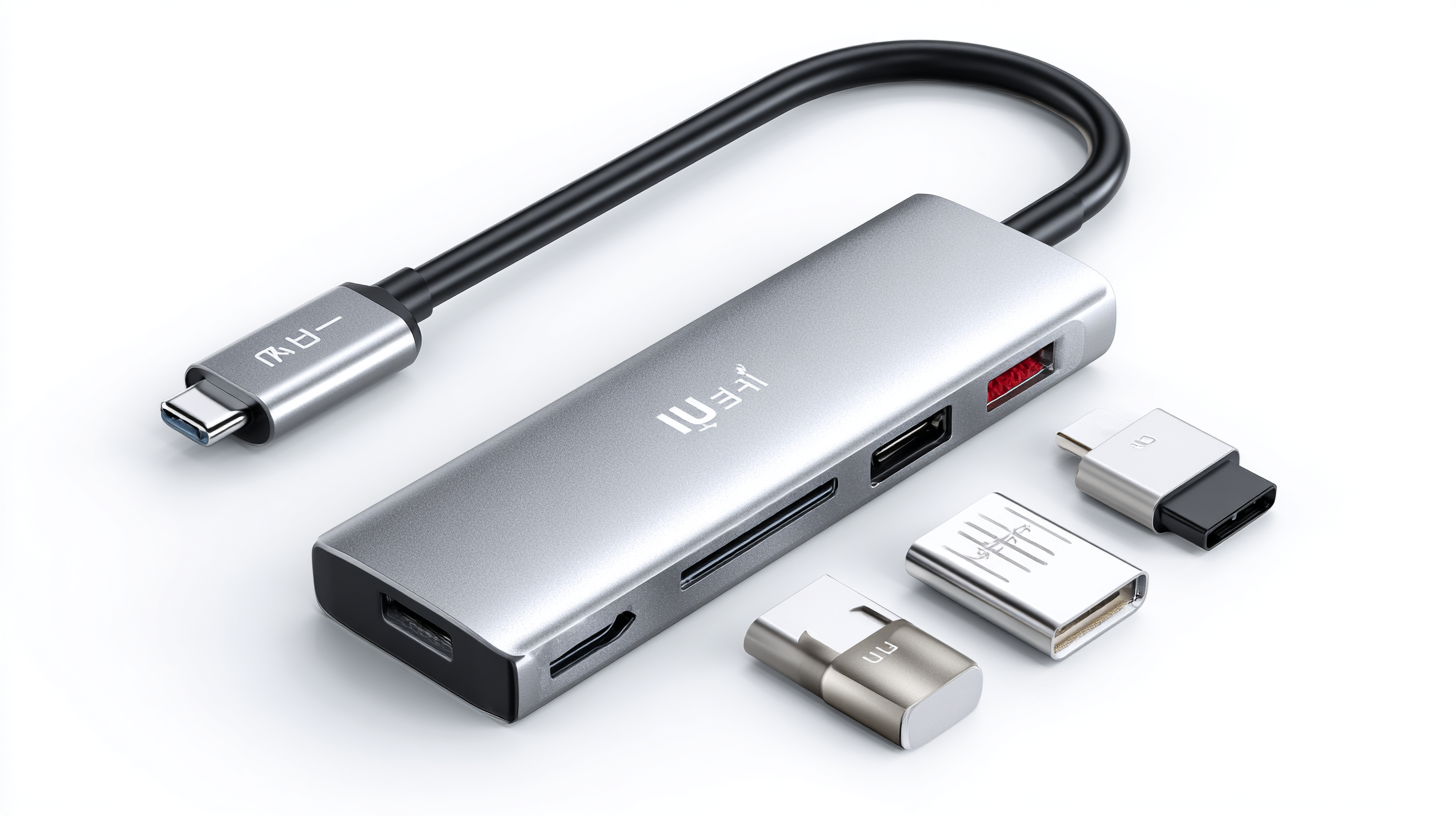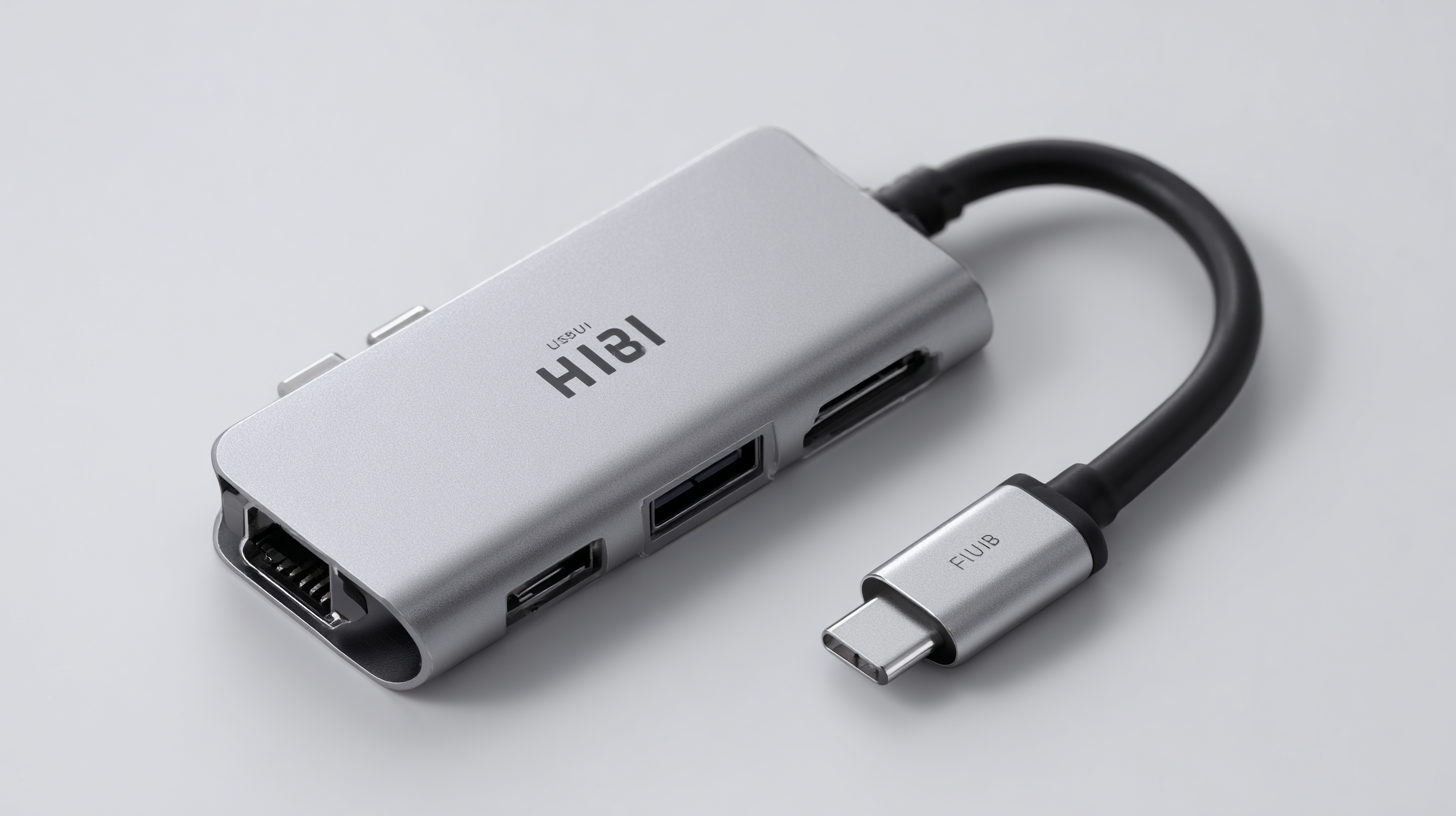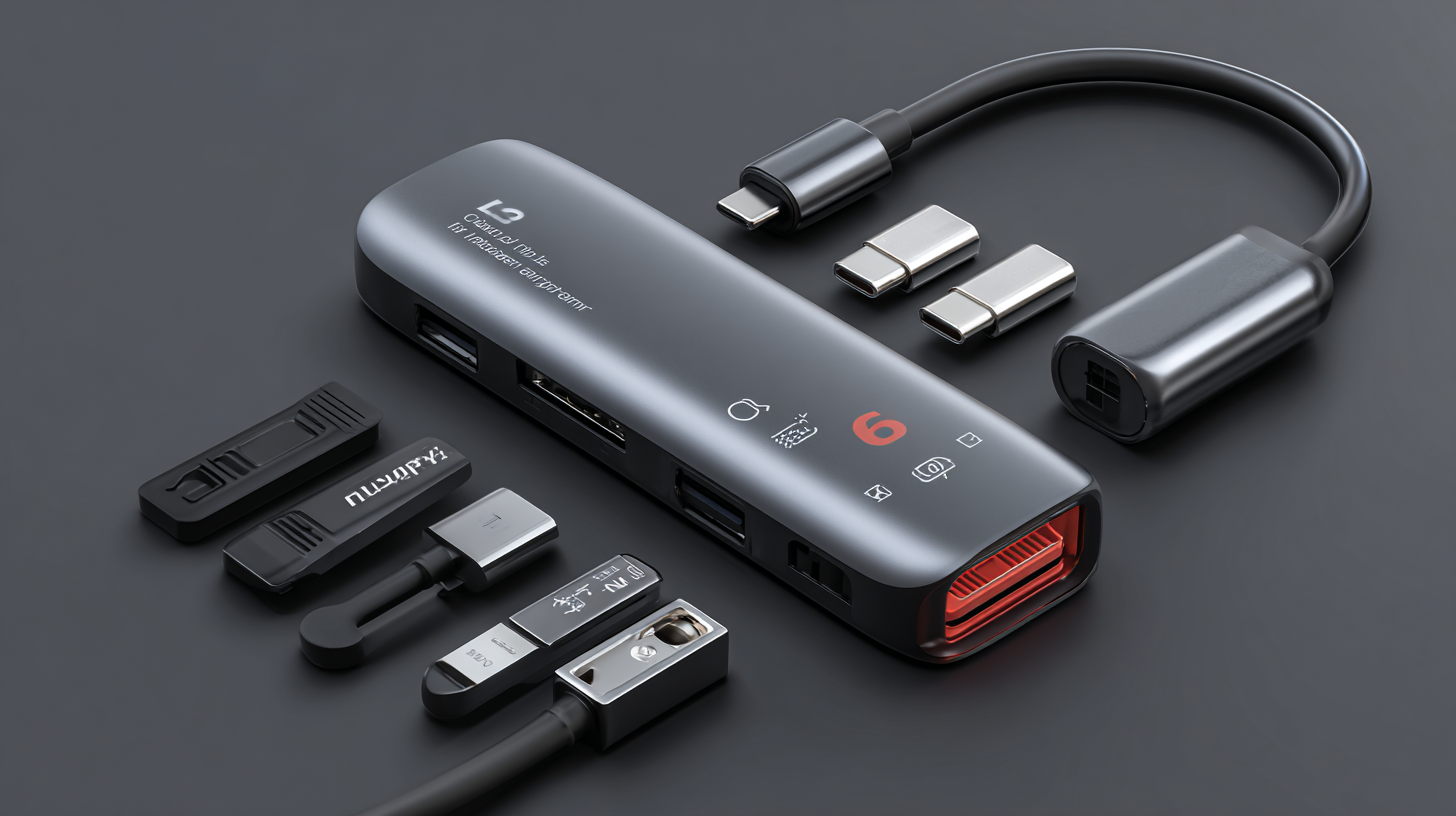
-
Home
-
Products
-
About Us
-
OEM&ODM
-
News
-
Contact Us
Inquiry
Form loading...

In an era where connectivity defines efficiency, the demand for high-quality USB C Multiport Hubs continues to rise, reflecting a global market valued at approximately $7.2 billion in 2021 and expected to grow at a CAGR of 10.9% by 2028, according to industry reports. As international trade extends its reach, China's craftsmanship has emerged as a key player in this dynamic landscape, providing innovative solutions that not only meet but exceed global standards. With an eye towards excellence, Chinese manufacturers are redefining what it means to create top-tier USB C Multiport Hubs—blending advanced technology with stringent quality controls. This evolution is paving the way for these devices to earn a reputable position in various markets, thereby contributing to the narrative of "从中国走向世界,品质赢得全球市场." As we delve deeper into this topic, we will explore how China's commitment to superior craftsmanship is shaping the future of USB C Multiport Hubs in global trade.

China has become a pivotal player in the global technology landscape, particularly in the rapidly evolving market for USB-C multiport hubs. According to a report by ResearchAndMarkets, the global USB-C hub market is expected to grow at a CAGR of 17.6% from 2021 to 2028, driven largely by the demand for versatile connectivity solutions that support various devices. As China continues to lead in manufacturing and innovation, it is set to redefine industry standards with its craftsmanship and technological advancements.

Chinese manufacturers are at the forefront of integrating cutting-edge technology into their products. For instance, a recent study by Statista indicated that as of 2022, over 70% of USB-C hubs on the market were produced in China. This dominance is attributed to advancements in production techniques and a robust supply chain that allows for rapid development and iteration of new designs. Features such as enhanced data transfer speeds, multiple connectivity options, and sleek designs that resonate with consumer preferences are increasingly being optimized by Chinese companies. As these innovations roll out to global trade, China's role in shaping the future of USB-C multiport hubs becomes more critical than ever, positioning it as an essential player on the international stage.
As we move towards 2025, the technological landscape surrounding USB-C multiport hubs is rapidly evolving, largely driven by the need for enhanced compatibility and functionality across devices. The recent commitments from tech companies point towards a harmonization of USB-C standards, addressing the long-standing confusion around charging, data transfer, and connectivity. This integration will not only facilitate smoother user experiences but also pave the way for wider adoption of USB-C peripherals in everyday consumer electronics.
In addition, advances in USB-C technology are set to enhance the charging capabilities of devices, aligning with growing consumer expectations for faster and more efficient solutions. With the push for sustainable and simplified electronics, the versatility of USB-C is becoming increasingly recognized as a powerful solution. As global markets adapt, we can expect to see these hubs playing a crucial role in various sectors, especially in trade, as they support a seamless exchange of power and data across different platforms and gadgets. The redefinition of USB-C multiport hubs as essential tools for global trade excellence reflects broader trends in the tech industry that prioritize efficiency, reliability, and user-centric design.
The global shift towards USB-C multiport hubs is revolutionizing trade efficiency across various industries. According to a report by MarketsandMarkets, the USB-C hub market is projected to grow from $2.1 billion in 2022 to over $6 billion by 2027, showcasing a compound annual growth rate (CAGR) of 22.3%. This surge is primarily driven by the increasing demand for versatile connectivity solutions that enhance productivity in a remote and hybrid work environment.
Furthermore, the impact of USB-C multiport hubs extends beyond just connectivity. Gartner emphasizes that businesses leveraging efficient technology, such as these hubs, can improve operational workflows by up to 30%. This improvement is critical in a globalized economy where timely data exchange and effective communication channels are essential. As manufacturers prioritize quality craftsmanship, particularly in China, the industry is not just meeting global demand but also setting standards that reassess the value of productivity tools in international trade.

China's manufacturing sector is undergoing a significant transformation towards sustainability, particularly evident in the production of USB-C multiport hubs. As global demand for eco-friendly technology rises, Chinese manufacturers are embracing greener practices to reduce their environmental impact. This shift is not only about compliance with international standards but also a commitment to the planet and future generations. By integrating sustainable materials, optimizing energy usage, and implementing waste reduction processes, these manufacturers are redefining their production cycles.
Moreover, innovation plays a crucial role in this green initiative. Companies are investing in research and development to create USB-C hubs that prioritize efficiency and longevity. This includes the use of recyclable materials and the design of products that minimize energy consumption during both use and manufacturing. As these hubs become essential tools for modern connectivity, China's push for sustainability ensures that they can meet the growing need for eco-conscious solutions in global trade, highlighting a powerful blend of craftsmanship and environmental responsibility.
In recent years, China's USB-C multiport hub market has witnessed remarkable growth, driven by the increasing demand for versatile connectivity solutions in both consumer and professional environments. According to a report by Grand View Research, the global USB-C hub market is expected to reach $1.07 billion by 2026, with a significant portion contributed by Chinese manufacturers. These companies are capitalizing on advanced technological capabilities and competitive pricing to gain a foothold in the international arena.
A competitive analysis reveals that China holds a strategic advantage in the production of USB-C multiport hubs, benefitting from a robust supply chain and economies of scale. For instance, industry leaders like Ugreen and Anker are leveraging China’s manufacturing prowess to enhance product innovation and maintain affordability while adhering to stringent quality standards. These factors are pivotal as enterprises and consumers alike seek reliable, high-performance solutions to meet their diverse connectivity needs.
Tip: When choosing a USB-C multiport hub, consider factors such as the number of ports, data transfer speeds, and compatibility with your devices. Look for hubs that support Power Delivery (PD) for efficient charging alongside data transfer to optimize your workspace. Additionally, keep an eye on customer reviews and warranty offerings to ensure product reliability.